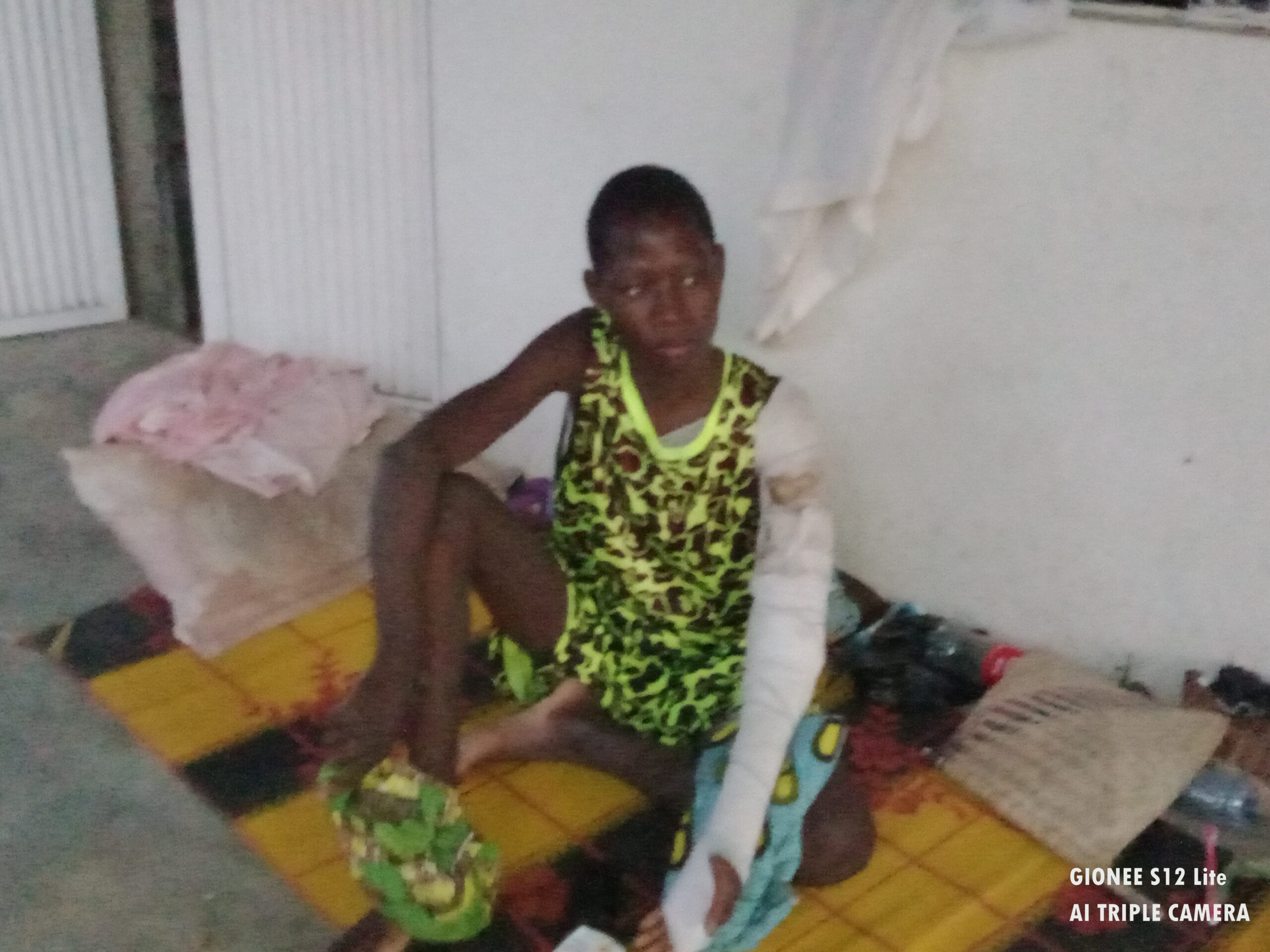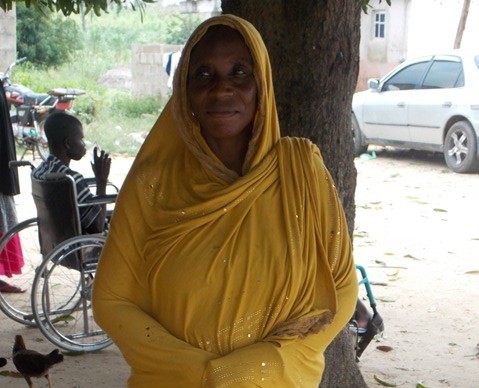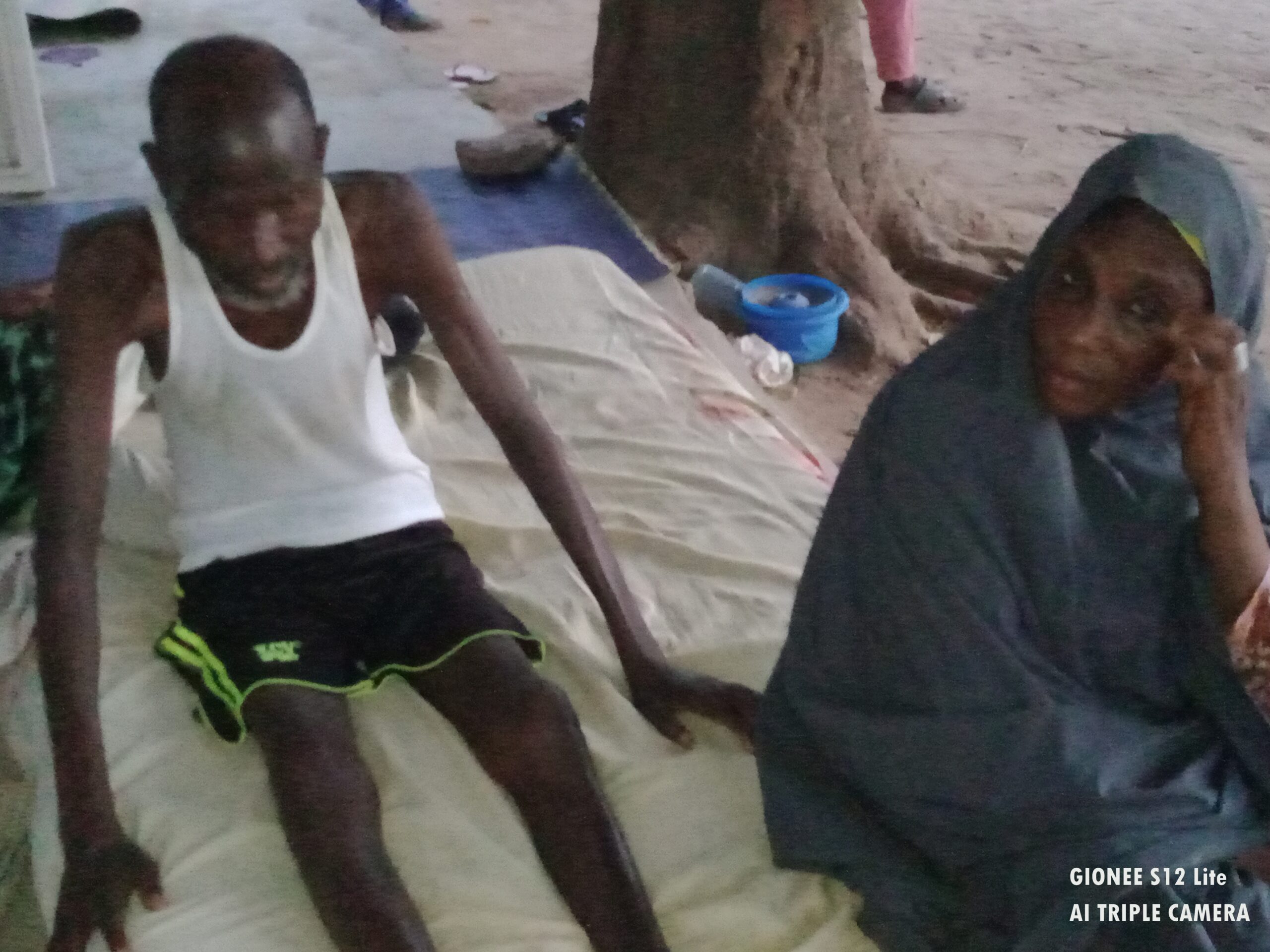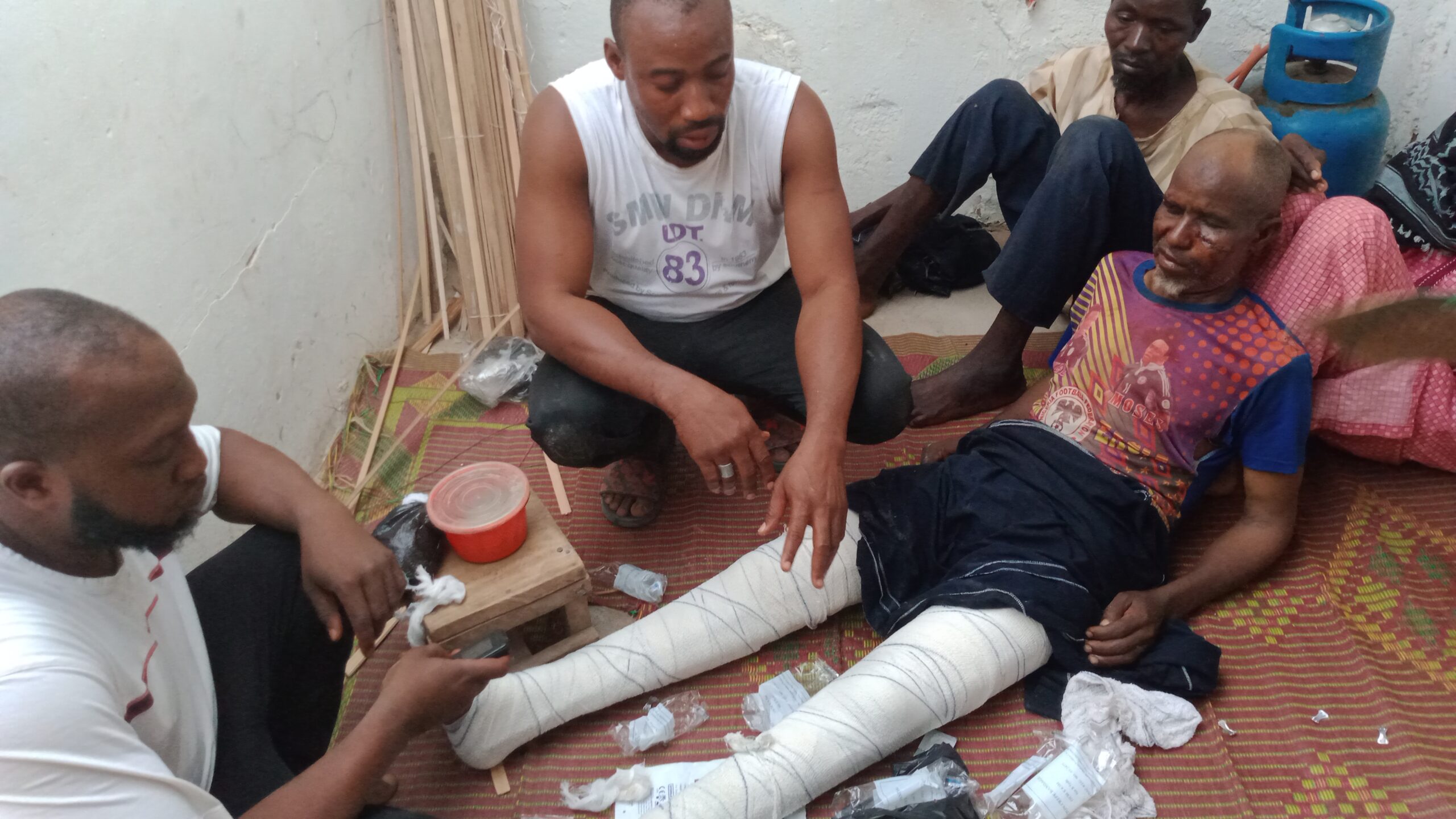With crutches, 12-year-old Chinwendu Okpara stretched her bandaged right leg in a major move since the accident that almost crippled her a year ago. As she wobbled to a stop after a few steps, her mother, Agnes Okpara, leapt with joy, clapping.
“My God has done it for me, my baby will walk again,” she enthused.
Chinwendu was the only survivor of a car crash in Gegu on the Lokoja-Abuja highway in February, 2020, while returning to Abuja from the East. “After four months in a hospital and three in a healing house, someone directed us to this place. Thanks be to God my baby is healing fast,” the mother said.

Like Chinwendu, many accident victims with fractures troop to the small but fast expanding facility at the Maitumbi FM area of Minna metropolis in Niger State from across the northern states.
The owner of the facility, Hajiya Hussaina Jibrin, and her children attend to the patients.

Asked why she delved into bone setting hitherto viewed as a men’s vocation, she said there was nothing masculine about it, adding that trado-medicine, like any other profession, was about interest and passion.
“I’m as good as any man who is into this, and even better than some of them,” she boasted.
At age 10, Hajya Hussaina started handling minor fracture cases.
“All the children in my family are introduced to the complex art from the age of seven. Bone setting runs in the family,” she explained.
She said she learned the art from her father, Malam Jibrin, of Unguwar Majidadi, Gidan Mai Zaki-Zaki in Kotangora, Niger State, where she practiced for many years before she got married and moved to Minna.
She explained that she acquired land on the outskirts of Maitumbi and built the facility following her rising profile and consequent increase in the number of patients. The hitherto five-room facility which also serves as her residence has undergone expansion within the last few years, bringing the number of rooms to nine, six of which now serve as wards. Even at that, the facility hardly contains the flood of patients, with some staying under mango trees, verandas and in a mosque close to it.

She explained that because of lack of space, only patients with severe cases were admitted for a long stretch of time, and that she accorded special attention to those from outside the state.
When 21st CENTURY CHRONICLE visited the facility penultimate Saturday, Hussaina’s eldest son, Jibrin, was attending to an accident victim, Ardo Babayo, who sustained multiple fractures.

“He sustained closed lower and upper extremity fractures which we do not have to refer to a clinic,” Jibrin explained.
Jibrin said they worked in collaboration with an orthodox hospital in case of patients that would require unorthodox attention or vice versa.
An orthopaedic doctor, Rilwan Abdullahi, agreed that it was necessary to collaborate with professionals to avoid complications that might arise from Traditional Bone Setters.
“The challenge of the orthopaedic surgeon is the attendant complications that are presented to him after the patient has been mismanaged by the TBS.
“Some of these complications include gangrene following very tight local splints, malnutrition, osteomyelitis, contractures and limb length discrepancies, and that is why there is need to collaborate to avoid such incidents,” he noted.
Like Ardo Babayo, Suleiman Adamu from Illela in Sokoto State and Ahmed Muktar from Bauchi State sustained multiple fractures and have been in the facility for six months. Both of them are already walking without any support.
“I had given up hope of not just walking again but surviving, but Alhamdulillah, I’m being able to use my legs again,” Adamu said.
With nine children and many grandchildren, Hussaina said she was planning for retirement, but that her eventual exit would not in any way create a vacuum as all her children were already entrenched in what had become a family vocation.
Jibrin is already handling most of the complex jobs, especially those requiring operation.
Her eldest daughter, Aisha, though married, already has a facility in Kotangora where she attends to patients.
When asked why with the deluge of patients thronging the facility there are no signs of affluence around her, Hussaina said her service was more of a humanitarian one than profit.
“Most of the patients can hardly afford the basic things required for their treatment, so if you charge such a person, how would he afford to pay for services?” she queried.
She said as children learning the basics of bone setting, their father impressed on them not to put money first, but to see the vocation as a humanitarian service.
She, however, said the vocation had exposed her to the world through her many travels across Nigeria and even neighbouring countries such as Niger, Chad and Cameron where she had been invited in the course of her work.
“The experience I have garnered over many decades cannot be quantified in monetary terms, so are the lives I have helped to save. Those are things I will live to treasure,” she said.








